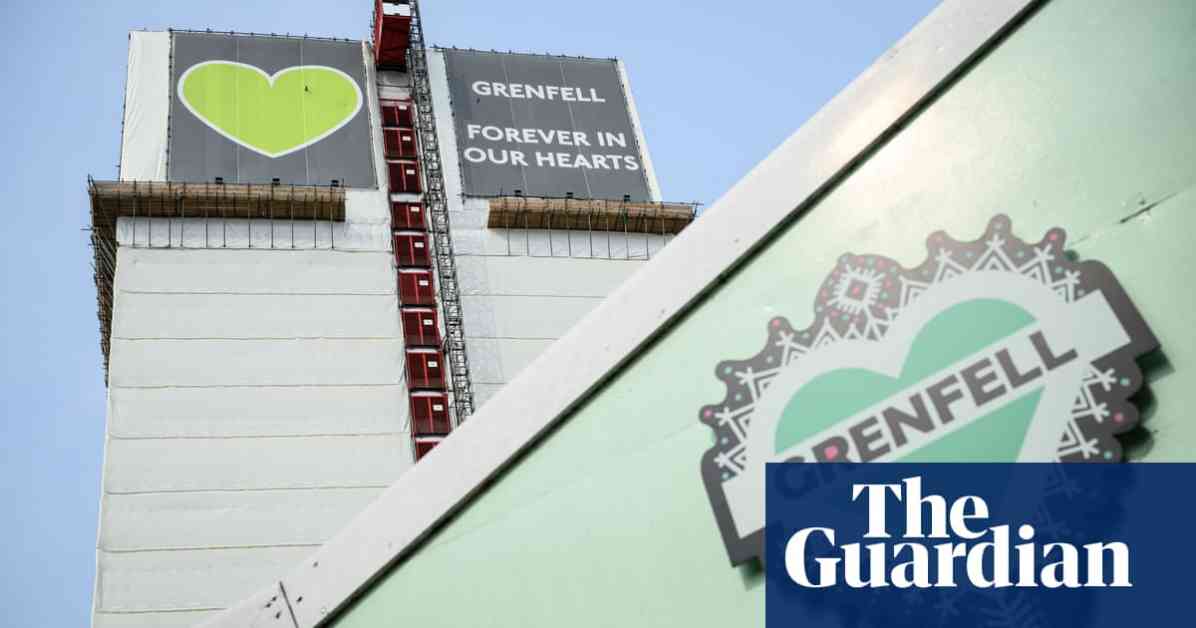Survivors of the Grenfell Tower disaster are eagerly awaiting the public inquiry’s final report, set to be released next week. This report is expected to put an end to the cycle of blame and shed light on the conduct of various entities involved in the tragedy, including government officials, construction firms, and multinational material manufacturers.
Gathering for Closure
On Tuesday, hundreds of individuals who lost loved ones or narrowly escaped the blaze that engulfed the council block in west London on June 14, 2017, will gather to hear the inquiry chair, Martin Moore-Bick, present his delayed conclusions and recommendations. Moore-Bick will address the survivors at a west London hotel, the same location where emotional family tributes were shared over six years ago for the 72 lives lost in the disaster.
There is a sense of muted confidence within the community that the 1,700-page report, set to be released to the public the following day, will finally reveal the truth behind the serious failings and potential criminal acts that led to the tragic loss of lives. Ed Daffarn, a survivor and member of the Grenfell United families group, expressed his anticipation for the report to unveil how various entities failed catastrophically in their duties, prioritizing profit over people’s safety.
Seeking Accountability
Politicians, including former Prime Minister David Cameron and ex-housing secretary Eric Pickles, are expected to face possible criticism in the report. Cameron’s administration was known for cutting red tape prior to the Grenfell disaster, while Pickles drew ire from survivors during cross-examination for his handling of the aftermath. The Labour government has stated its commitment to carefully reviewing the report’s recommendations, while the bereaved and survivors are hopeful for a pledge to implement all suggested changes.
A spokesperson for the Ministry of Housing, Communities and Local Government emphasized the government’s dedication to securing justice for the Grenfell community and improving building safety standards. The report is anticipated to challenge existing perceptions and prompt a reevaluation of societal attitudes towards those living in social housing estates.
Pursuing Justice
Tiago Alves, another survivor, emphasized the importance of criminal prosecutions following the release of the report as a means of ensuring accountability and deterring future negligence. The report is expected to name and shame companies like Arconic, Celotex, and Kingspan, whose products played a role in the rapid spread of the fire at Grenfell Tower.
The Royal Borough of Kensington and Chelsea, the block’s owner, is also expected to face renewed scrutiny for its failings in maintaining the building. A compensation settlement involving numerous affected individuals has already been reached, with several corporates contributing to the fund. However, the pursuit of justice extends beyond financial compensation, with Scotland Yard identifying multiple individuals and organizations as potential suspects in criminal investigations.
In conclusion, the release of the public inquiry’s final report on the Grenfell Tower disaster marks a pivotal moment for the survivors and the wider community. It is a chance to uncover the truth, hold accountable those responsible for the tragedy, and ensure that such a catastrophic event never occurs again. The report’s findings will not only shape the future of building safety regulations but also serve as a reminder of the enduring importance of seeking justice for the victims of Grenfell.












